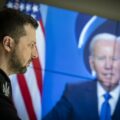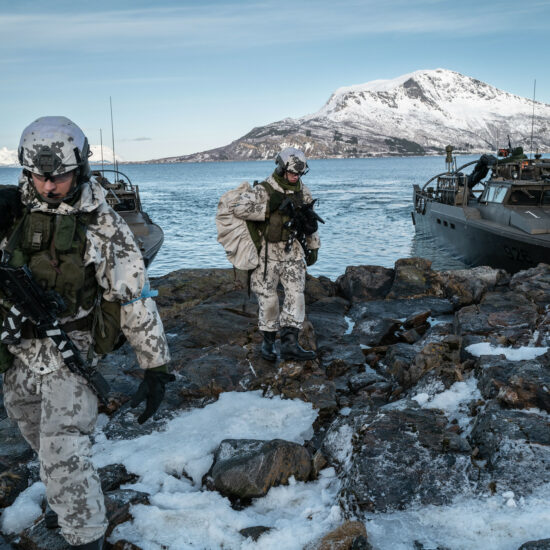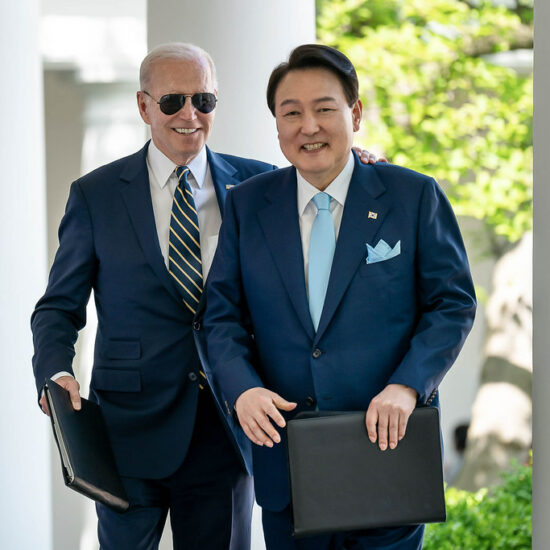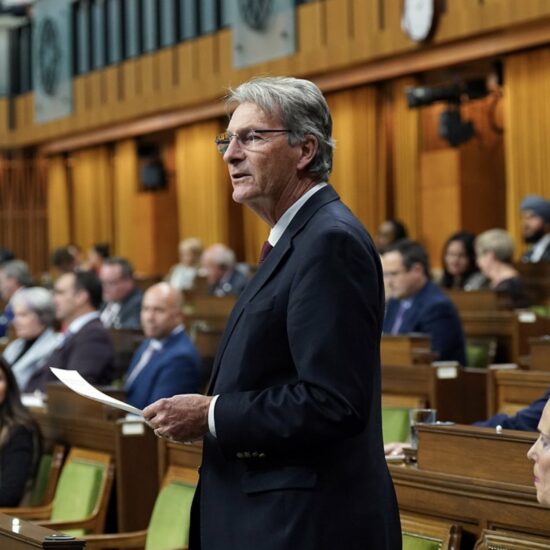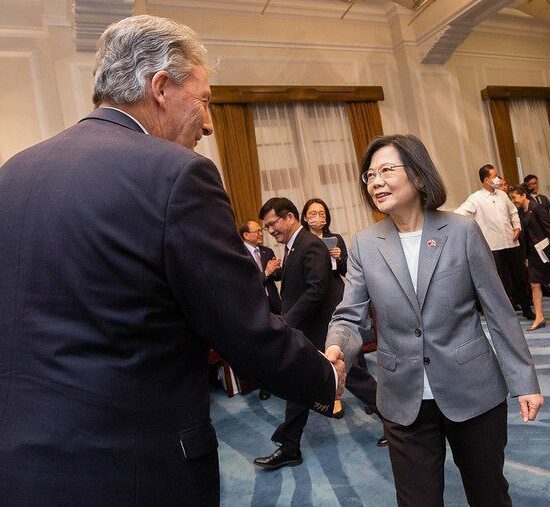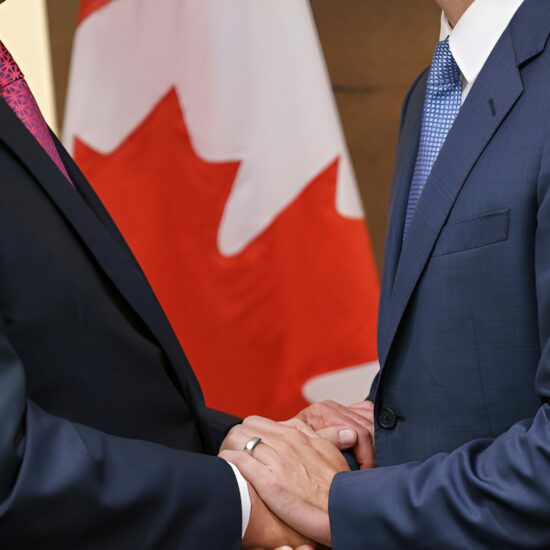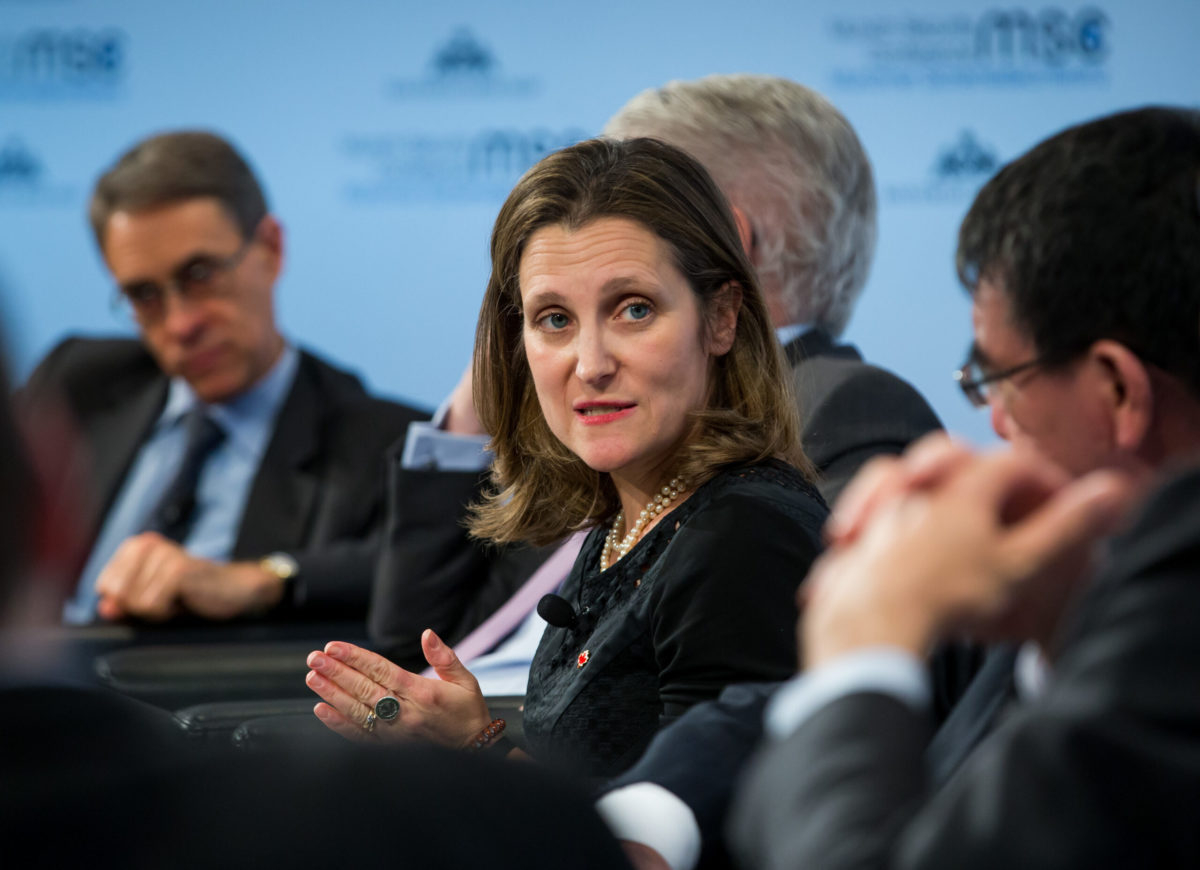
Chrystia Freeland during the Munich Security Conference 2018. 16 February 2018/ By Hildenbrand / MSC
Canada’s determination to stand its ground and absorb the costs won it plaudits from human rights constituencies at home and abroad. But it was a pyrrhic victory. Canada’s ability to actually have an impact and genuinely advance its values or human rights agenda in Saudi Arabia suffered.
Dennis Horak, Former Canadian Ambassador to Saudi Arabia
It’s been nearly two years since an ill-conceived tweet and Saudi Arabia’s massive over-reaction to it upended Canada-Saudi relations in August 2018.
Saudi Arabia’s decision to effectively downgrade diplomatic ties with Canada, cut cultural/student contacts and freeze commercial ties was not pre-meditated. Despite their dissatisfaction with Canada’s neglect of the relationship and Ottawa’s singular focus on human rights, the Saudi-Canada relationship was still valued.
The abrupt derailment had all the hallmarks of Crown Prince Mohammad bin Salman’s (MBS) impulsive nature and hyper-sensitivity to criticism (international or domestic). The tweet demanding the “immediate release” of women rights activists unjustly detained on fabricated “security” allegations, provided MBS with the opportunity to send a message to the international community: Critics of Saudi Arabia would pay a heavy price. Targeting a G-7 country in such a high-profile, over-the-top manner would ensure that that message would resonate widely.
Canada wasn’t looking for this kind of fight either. The Government had issued similar – if less incendiary – tweets in the past (as had other countries) with little blowback. To say that the Saudi reaction was a surprise would be an understatement.
But for some within and outside Government, the bilateral derailment provided an opportunity for Canada to underscore its willingness to pay the price to defend its principles and values. Moreover, it freed the Government from having to consider the impact various human rights initiatives might have on the bilateral relationship (it is worth considering, for example, whether Canada would have been as enthusiastically assertive in offering refuge to a young Saudi woman, Rahaf Mohammad Al-Qunn in December 2018 had relations been on a normal footing).
Canada’s determination to stand its ground and absorb the costs won it plaudits from human rights constituencies at home and abroad. But it was a pyrrhic victory. Canada’s ability to actually have an impact and genuinely advance its values or human rights agenda in Saudi Arabia suffered.
Despite the increasingly authoritarian rule of MBS and the tightening of political space in the Kingdom, the social and economic reform efforts launched by the Crown Prince’s Vision 2030 program and the weakening of the role of the Saudi religious establishment in the Kingdom are significant. While success is far from certain – and the economic fallout from the pandemic, coupled with MBS’s penchant for self-inflicted wounds, raises real questions about the program’s viability going forward – many of the reforms being pursued have had a positive impact, especially on the role of women in Saudi society (although there is much more that needs to happen).
Normal diplomatic relations with Saudi Arabia allowed Canada to play a supportive role in these reform efforts, both directly and indirectly.
The thousands of Saudi students who came to Canada annually – men and women – returned to the Kingdom with a different perspective. Many took the lessons they learned here to work as agents of change back in the Kingdom. One Saudi graduate from St. Mary’s, for example, returned home and started a very successful company devoted solely to facilitating the entry of Saudi women into the workforce. These students are no longer coming.
Another, more direct, example of Canadian support for change was the contribution Canada was making to teacher training as part of a broader Saudi initiative to reform the way their sclerotic school system functions. The success of these and other Educational reforms will be a key element in the transformation of Saudi society over the longer term. Canada could have been recognized as a leader in that effort, but that has now also ended.
These two examples may lack the pizazz of a widely shared social media post, but they had a practical value on the ground that no tweet could ever hope to match. Tweeting is Public Relations, not diplomacy. Tweets preach to a choir. They tick brand boxes in a search for “Likes”. Tweets may be politically and emotionally satisfying for Ministers and supporters but, they do nothing to actually change the lives of Saudis, which ostensibly, is the goal of Ottawa’s human rights policies. In this case, however, Canada’s penchant for being seen to be on the “right side” with a tweet undermined the Government’s ability to actually have a meaningful impact. The Government, effectively, traded effectiveness for applause and that is an exchange Canada should not find acceptable nor let stand.
There is a way out of this, but it won’t be easy or entirely comfortable. The Saudis have demanded a public apology and that is rightly off the table. Canada has nothing to apologize for. But there is a way forward and there is precedent.
The Germans and the Swedes found themselves on the outs with Riyadh not so long ago following critical comments about Saudi Arabia by Ministers in their countries. They ultimately succeeded in getting relations back on track through a combination of sustained, high-level diplomatic engagement, determined political will and creative diplomatic drafting of “non-apology apologies” that satisfied the needs of both sides.
It didn’t mean that they suddenly jettisoned their principles or concerns about Saudi Arabia. They understood that normal diplomatic ties were not a seal of approval but a means to an end. They realized that to do everything they wanted to do, including on human rights, they needed to be playing at full diplomatic strength.
Canada has reportedly made efforts to repair the relationship, but with little success to date. It will be hard and there may be additional complications (including MBS’s quixotic nature). It will take a level of political commitment and sustained engagement – at the most senior levels – that may not be entirely popular among the constituencies who cheered Canada’s “principled” stand and continue to champion the idea of “ghosting” the Kingdom. But it is worth doing.
That doesn’t require sacrificing Canadian principles. On the contrary, it means putting Canada back in a position to actually be able to pursue them and to have an impact – however small – beyond the easily ignored hectoring from the social media sidelines that seems to pass for effective diplomacy these days.
About the Author:
Dennis Horak served as Canadian Ambassador to Saudi Arabia, Oman, Bahrain, Yemen, and former Head of Mission in Iran.
Note: The views and opinions expressed are those of the author and do not necessarily reflect the position of the Institute for Peace & Diplomacy or its executive team.

